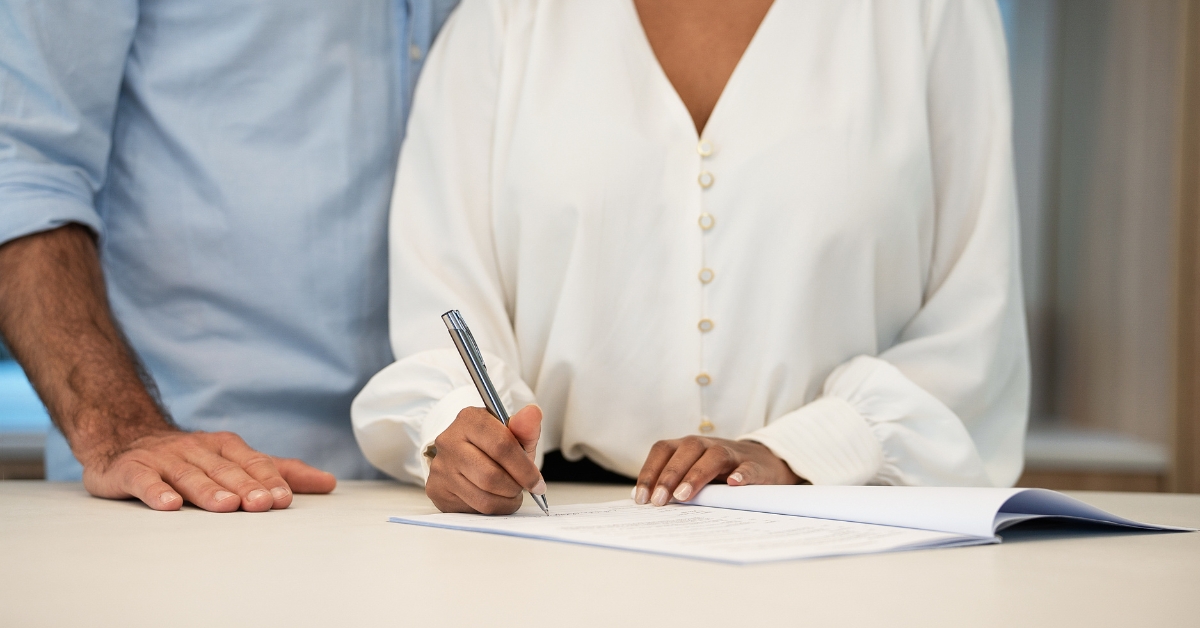Renting Real Estate in Queensland

Sometimes, you might not be ready to buy a house just yet. Alternatively, you may have bought property and are using it as investment real estate. No matter the reason, many people want to rent Queensland property.
But what is the process for finding, choosing and applying for Queensland rental real estate? Here, we have the process covered, with all the resources you might need.
Where to look for a Queensland rental property
First of all, you should decide what you need out of the rental property. Will it be just for you, or do you want to live with other people? What amenities do you need nearby? Will you pick an area close to the city, or a particular school / university? How much can you afford to spend on rent every week?
Here are some criteria to consider:- How much rent can you afford?
- What type of property do you prefer - a house, apartment etc?
- How many bedrooms do you need?
- Do you need parking?
- Do you want to share with someone else?
- Do you want a garden?
- Do you need a space for pets?
- How close do you need to be to public transport and other amenities?
The Queensland government has a long list of questions to ask before picking a rental property, as does the Queensland Residential Tenancies Authority - it's well worth going through each in more detail. There is also QFinder, which acts as a directory for facilities and services in a particular area.
What can really help you, though, is the use of a property management service, such as LJ Hooker. This takes a huge amount of hassle out of the process. Our Property Management team has rental properties up for grabs the length and breadth of Queensland, and we'll help you find one that's perfect for your requirements.
The importance of inspections
It's vital that you spend time meticulously inspecting any Queensland property that you have your eye on. You'll need to look at all furnishings and fittings, as well as making sure that everything is in proper condition. Because it will be expected that the house be in good condition once your lease is up, it should be fine when you are handed the keys - but you still need to make sure.
You should especially look out for any signs of mould, as well as the condition of utilities such as plumbing, heating, and cooling. Any existing whiteware should also be examined.
Applying for rental property in Queensland
How to become a tenant in Queensland
If you've found somewhere that suits your needs and lifestyle, the next step is going to be your application. This is a two-way street, however, and also functions as an opportunity for you to carefully inspect the rental property.
Generally, you will contact the property manager or landlord about the home and organise a viewing / inspection. You'll want to make a good impression, and perhaps even treat it like a job interview - the Queensland government has handy tips for dealing with this situation.
Your application will also likely consist of a form, where you list referees from previous tenancies. If you like what you see and the landlord likes you, it's time to take the next step!
The new tenant checklist
As the Residential Tenancies Agency explains, before you move into a new place, you'll need a completed entry condition report that details any existing damage or other problems with the property. Be sure to fill it out with maximum attention to detail - this is why it's so important that you inspect the property beforehand. The landlord or letting agent will then sign the report, giving you a copy, and keeping one for themselves. You'll also need the following information:
- The bond lodgment form
- The entry condition report
- Your tenancy agreement
- Two copies of the report detailing the condition of the rental property
- Any repairs that will be made by the landlord, in writing
If any of these are missing, don't sign the agreement. This is because a Queensland tenancy agreement is a contract that's legally binding, sometimes for six months or longer. It can also cost a lot of money to get locked into a contract you don't want to be in, so be sure to take your time and read everything.
The costs of rental property in Queensland
An important thing to note is that there can be some upfront costs. Key deposits for viewings do exist, especially in circumstances where the landlord will not be present. Additionally, you may pay a holding deposit - something which gives you first choice in signing a rental agreement, and must be honoured by both you and the landlord. Get the details of these in writing!
You will then pay a bond and perhaps rent in advance. The Residential Tenancies Authority goes into detail about this, but the most rent you can legally be asked to pay ahead of time is one month's worth. The details of this will also be set in stone on the most significant aspect of the Queensland rental process - the contract.
You cannot pay more than one month's rent in advance for fixed-term leases, or two weeks for a period agreement. By law, you can't be charged more than four week's rent as bond if the rent is less than $500. However, if your rent is more than $500, an unlimited bond can be set.
In Queensland, your rent can only increase if it's specified in the tenancy agreement. The contract must state how much the rent will be going up, and give at least six months' notice. Additionally, it must have been at least six months since the last increase.
- A holding fee, to ensure you get the house
- A refundable fee to secure keys for a viewing, which you'll get before signing the agreement
- If you want extra keys, you'll have to pay for them yourself
- Any setup fees for utilities such as electricity, water, power and the internet
There are a fair few costs that you can't be held responsible for. These include any expenses that come with setting up bonds or paperwork, or obtaining keys or swipe cards for each tenant named on the agreement.
Condition reports
We've already mentioned the condition report, which details the overall state of the property. This document plays a vital role in getting your bond back, which is another reason to fill it out as accurately as possible.
The two copies must be identical, so that you and your landlord or letting agent are on the same page and there are no discrepancies. You can take photographs to back up any problems you find, but be sure to have the report back to the landlord or agency within three days.
Signing the tenancy agreement
There are two main types of tenancy agreements in Queensland:
Fixed term agreement
This contract allows you to stay in a Queensland rental property for a fixed period of time, hence its name. Usually, this is around six to 12 months, but it can be longer. A fixed-term agreement can be renewed between both tenant and landlord upon its expiry.
Periodic agreement
The periodic agreement can begin when you first move into a Queensland rental property, but normally, it will follow on from an initial fixed term agreement. A periodic agreement has no fixed end date, but it retains the same rules and regulations as a fixed term one.
Reading the fine print
The paperwork you sign for a rental property is crucial, as it doesn't just outline how much you pay - it goes into detail about the condition of the property and the terms of your tenancy. An entry condition report details exactly how the home is, while bond lodgment forms are essential for protecting your deposit.
Tenancy agreements state the terms of your lease, everything from how long you will stay, to how much you pay, to special terms like where pets can be kept, and who is responsible for the garden. Any disputes that arise later in a tenancy will come back to these documents, which is why they are so crucial for a happy rental agreement between all parties.
For any further questions, you can get in touch with us here at LJ Hooker, or use any of these government resources to get your questions answered.
DISCLAIMER - The information provided is for guidance and informational purposes only and does not replace independent business, legal and financial advice which we strongly recommend. Whilst the information is considered true and correct at the date of publication, changes in circumstances after the time of publication may impact the accuracy of the information provided. LJ Hooker will not accept responsibility or liability for any reliance on the blog information, including but not limited to, the accuracy, currency or completeness of any information or links.



